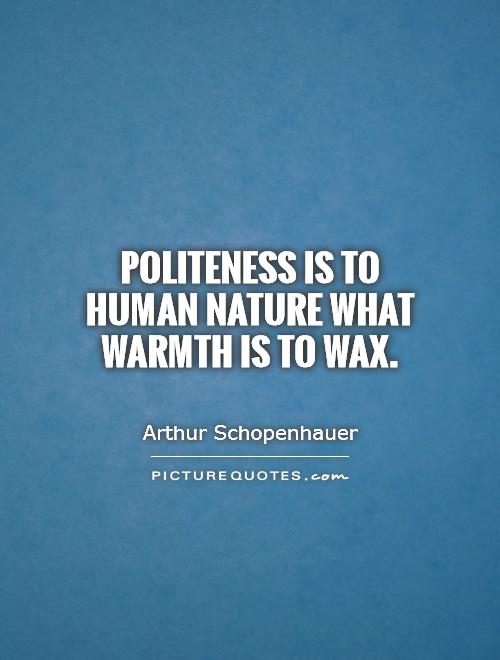Politeness is to human nature what warmth is to wax

Politeness is to human nature what warmth is to wax
Arthur Schopenhauer, a renowned German philosopher, once famously said, “Politeness is to human nature what warmth is to wax.” This profound statement encapsulates the idea that politeness is essential in shaping human behavior and interactions, much like how warmth is crucial in molding wax. In the context of Schopenhauer’s words, politeness can be seen as a fundamental aspect of human nature that has the power to influence our relationships and interactions with others.Politeness is often regarded as a social lubricant that helps to smoothen the rough edges of human interactions. It is a form of respect and consideration that we show towards others, reflecting our ability to empathize and understand the feelings of those around us. Just as warmth softens wax and makes it malleable, politeness has the ability to create a conducive environment for communication and understanding between individuals.
In a world where conflicts and misunderstandings are all too common, politeness plays a crucial role in fostering harmony and cooperation among people. By being polite, we demonstrate our willingness to listen, compromise, and find common ground with others. This not only helps to build trust and rapport but also paves the way for meaningful and constructive interactions.
Moreover, politeness is a reflection of our character and values as individuals. It shows that we are considerate, respectful, and mindful of the impact of our words and actions on others. Just as warmth shapes wax into a desired form, politeness helps to shape our relationships and interactions in a positive and constructive manner.












 Friendship Quotes
Friendship Quotes Love Quotes
Love Quotes Life Quotes
Life Quotes Funny Quotes
Funny Quotes Motivational Quotes
Motivational Quotes Inspirational Quotes
Inspirational Quotes